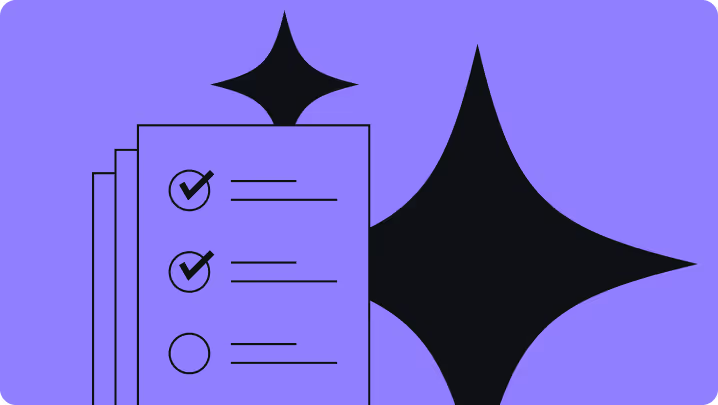Winter is coming.
And by that we mean file review season—the annual stress test designed by chaos gremlins to see what breaks first: your team, your sanity, or your CRM.
Maybe your application volume is up (yes!), but staffing is flat (womp womp). Expectations are high, and everyone is pretending they're fine.
But what if AI could not only bring relief, but also improve yield, reduce decision time, and make your whole review cycle more strategic? Let's discuss.
The Brutal Reality of File Review
Here's the math: more applications, each with more complexity, being read by the same number of humans. The pressure to be fast, fair, and holistic is a paradox only higher ed could invent.
Pretending this is sustainable doesn't make it true. Burnout is real, and quality drops when your team is running on fumes and caffeine. It's time for a change.
What AI Can Take Off Your Plate (If You Let It)
AI isn't here to steal jobs. It's here to steal the soul-crushing busywork nobody wanted in the first place.
Your admissions committee can finally focus on decision-making, instead of the administrative chaos that buries them every February. Here's what that looks like.
The Administrative Grind
You have a master's degree. You're currently copying GPAs into spreadsheets. Make it make sense.
AI handles the grunt work that drains your team's brainpower—the stuff that makes people question their career choices at 11 p.m. on a Tuesday.
Tools like Parchment and Kira Talent can finally get transcript processing under control, pulling out GPAs, test scores, and coursework details so your team stops manually hunting for basic data. We're talking hours saved every week during peak volume.
AI also standardizes the chaos. It organizes notes, formats summaries, and cleans up the clutter your CRM pretends doesn't exist. Say goodbye to hunting for that one comment buried in three different formatting styles that make no sense.
AI as Bouncer, Not Judge
Your best reviewers shouldn't waste time on files that aren't ready for prime time. AI can be the tireless front-line screener that never calls in sick.
- Priority flagging: Tools like Slate Query quickly identify applications that meet your key institutional criteria. Build momentum by starting with your strongest files instead of wading through the maybe pile.
- Incomplete application identification: Platforms like Liaison's CAS or Enrollment Rx spot missing documents, scores, or recommendation letters before a reviewer wastes time opening an incomplete file. It's basic triage, and it works.
- Anomaly detection: Grade drops, mismatched scores, odd patterns that deserve a second look—AI surfaces the weird stuff so you can investigate. Custom-built models within CRMs are particularly good at this.
Pattern Recognition You Don't Have 47 Extra Hours to Do
Your team is drowning in data. AI can swim through it and find patterns you'll never have time to discover on your own.
- Stop wrestling with spreadsheets. AI slices years of data by major, region, and behavior and makes sense of it. You get the full picture without the pivot table nightmares.
- Benchmark against reality, not fantasy. Tools like Civitas Learning use data that's relevant to your students, not national averages that don't match your context. Because comparing your regional public to the Ivy League issn’t useful to anyone.
- Catch the early warning signs. Tools like EAB's Navigate and Starfish Retention Solutions pick up risk signals—grade dips, missed deadlines, inconsistent records—so you can offer support before things go sideways.
AI as Your Overqualified Research Assistant
Imagine giving every reviewer a tireless research assistant who never sleeps, doesn't need coffee breaks, and delivers exactly what you asked for.
AI drafts clean applicant summaries, pulling key academic and extracurricular highlights into one polished view. No more hunting through five different screens to piece together a student's story.
Platforms like Slate or Kira Talent can standardize evaluation frameworks without flattening nuance. You get consistency where it matters and flexibility where it counts.
Workflow Management Without the Meltdowns
AI keeps your process moving when everything else wants to grind to a halt.
Tools like Slack with Workflow Builder or Microsoft Teams automate internal updates so people actually know what's happening. Notion or Asana can draft status reports and reminders that don't sound like they were written by a robot (even though they were).
Project management tools like Trello, Monday.com, and ClickUp track progress, flag delays, and send alerts before small problems become dumpster fires.
What AI Cannot (and Should Not) Do
AI is powerful. It's also just a tool. The real work—the work that matters—will always be human.
Judgment: The Real Work
This is the core of admissions, and it's nonnegotiable.
AI can't weigh context. The grit, the promise, the adversity that shapes a student's path—that's invisible to algorithms. A dip in grades is just a number to a machine. To you, it might signal a family crisis or a story of resilience worth betting on.
AI has no lived experience to draw from. You do. That's not a bug, it's the entire point.
Equity and Mission
Your institution's values can't be outsourced to a vendor in Silicon Valley.
AI may flag signals, but it can't interpret your culture, your mission, or your community's expectations. Building an equitable process requires human oversight, empathy, and a commitment to doing what's right, even when it's inconvenient.
Relationship-Driven Decisions
Admissions is built on relationships. No bot can replicate that, and honestly, no bot should try.
Trusted relationships with high school counselors still matter. Applicants deserve a human voice, not an auto-response that sounds like it was written by a chatbot having an identity crisis. You're building a class, not processing transactions.
Accountability
This one's big: you can't blame the robot.
When admissions decisions go sideways, leadership is coming for you, not your CRM. "The AI made me do it" won't fly with your president, your legal team, or your accreditation body. The buck stops with you, always.
Guardrails: Power Tools Require Instructions
Handing your team AI without guardrails is like giving kindergartner keys to a car. Theoretically possible, definitely a bad idea.
Establish rules from day one:
- Oversight: Define boundaries. What does AI automate, and where must a human intervene? Be specific. Write it down. Make people read it.
- Bias monitoring: AI can amplify human bias if you're not watching. Regularly evaluate models and outcomes. If your AI starts flagging patterns that look suspiciously like redlining, you have a problem.
- Privacy and data discipline: FERPA isn't optional, and neither is due diligence. Vet your vendors. Protect student data. Don't be the cautionary tale at a conference next year.
How to Make Your Team More Human, Not Less
This guide isn’t about turning admissions into an assembly line, it's the opposite. By automating busywork, you free up your team to think, connect, and build a class.
AI helps you:
- Focus on strategic evaluation instead of clerical tasks nobody wants
- Improve consistency without losing the nuance that makes decisions defensible
- Make a small team feel bigger and keep people from rage-quitting during peak season
Rolling Out AI Without the Drama
You don't need a splashy launch. You need wins, not fireworks.
- Start small: Pick a high-impact, low-risk task like data capture or status checks. Prove it works before scaling up.
- Train early: Train reviewers before peak season hits. Scrambling to learn new tools in January is …not ideal.
- Clarify responsibilities: Spell out what AI does and what humans decide. Ambiguity breeds chaos, and you have enough of that already.
- Measure everything: Track results, efficiency, and decision quality. If you can't measure it, you can't defend it.
AI Isn't Coming for Your Job—It's Coming for the Nonsense
Here's the truth: AI isn't coming for your job. It's coming for the parts that drive you crazy.
The future of enrollment is straightforward: humans make the decisions; AI makes the workload survivable. Leaders who embrace that division of labor will build faster, fairer, and more humane admissions processes—and stronger classes—while everyone else drowns in spreadsheets wondering where it all went wrong.
Your team didn't sign up to be data clerks. Let's get them back to the work that matters.




